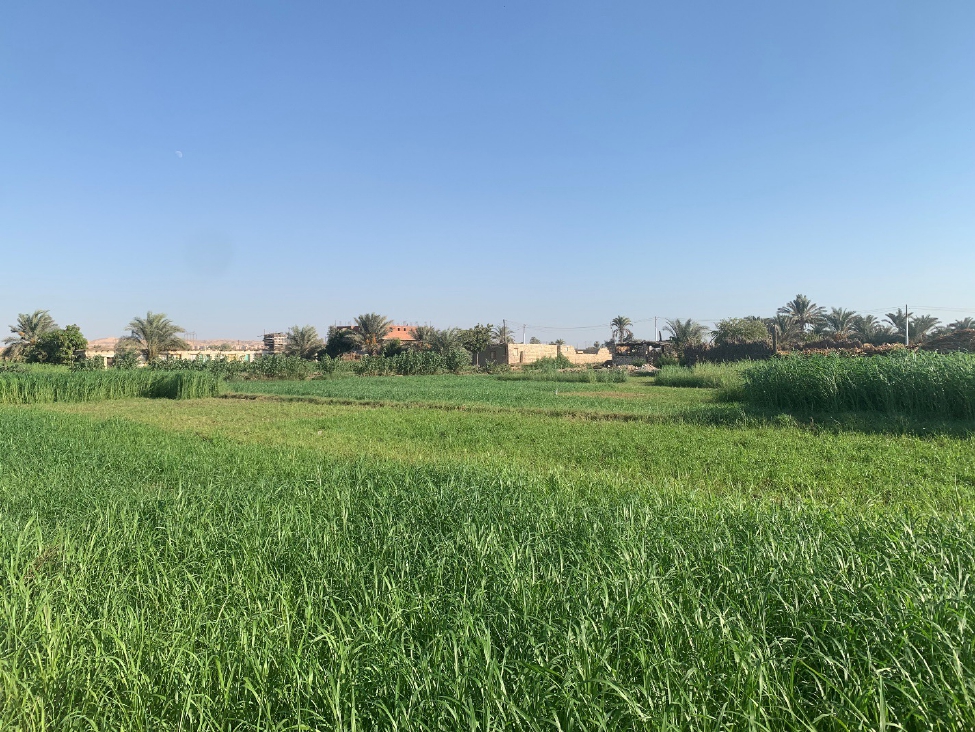Blockchain for climate action: Investing in Egypt’s farmers to build the low carbon future we want
November 7, 2022

The wide-ranging impacts of climate change are adversely affecting millions of smallholder farmers around the globe, with farmers in Africa suffering the worst of these impacts. Rise in temperatures and extreme weather events, combined with a sharp increase in pests and diseases, are putting the very livelihoods of these farmers at risk.
Much more investment will be needed to provide farmers with the skills and finance they need to adapt to the changing climate.
This urgent need for support comes at a time when many African countries have even greater debt vulnerabilities than they did in the aftermath of the 2007–8 global financial crisis, greatly limiting their capacity to invest in climate resilience.
According to the Africa Group of Negotiators, for example, an estimated three trillion USD is needed for countries in Africa to implement their nationally determined contributions under the Paris Agreement, but less than twenty billion USD was provided to Africa in 2016– 2019.
Voluntary carbon markets could play a role in filling this gap while driving sustainable and equitable climate action in Africa.
An effective voluntary market for carbon credits would make it easier for companies to locate trustworthy sources of carbon credits and complete the transactions on their behalf.
By enabling more carbon offsetting to take place, a voluntary carbon market would support progress toward a low-carbon future.
But time is running out. And fast progress needs fast solutions.
In Egypt, a country that imports 60 percent of its food for a population of over a hundred million, any significant decline in agricultural output would pose a major threat to food security. This is why adapting Egypt’s agricultural sector to climate change has been an especially high priority in recent years. And UNDP has been working closely with the Government of Egypt, private sector, and farmers to support this adaptation.
Two years ago, the Egyptian Biodynamic Association of organic farmers and the SEKEM initiative pushed forward an Economy of Love concept – bringing together a community of farms, companies and consumers to create an economy based on respect and fairtrade towards people and nature.
This initiative developed the ‘EoL standard and carbon scheme’ to help actively contribute to climate change adaptation and mitigation. This standard uses an internationally recognized UNFCCC model to measure how much CO2 is emitted on EoL-certified farms and how much is sequestered.
To date, the EoL carbon scheme has helped motivate 2100 farmers in Egypt to plant more trees, increase compost production, improve soil fertility through regenerative agriculture, and promote the introduction of renewable energy on small-scale farms.
With the carbon market in Egypt being still very much in its early stages, however, incentivizing farmers, accessing carbon markets, and getting the word out about the importance of transitioning to net zero has been slow.
Transitioning to a net-zero world is the greatest challenge we have ever faced.
And there are currently only two feasible strategies for achieving this transition: (i) reducing carbon emissions; and (ii) carbon offsetting. It is only by balancing these strategies that we can hope to achieve carbon neutrality by 2050.
Achieving such a balance depends on the existence of a large, transparent, verifiable and environmentally robust voluntary carbon market. At present, however, in Egypt, this market is fragmented and complex.
Limited data on pricing in this market, for example, not only makes it difficult for buyers to know whether they are paying a fair price but also for suppliers to manage the risk of financing and working on carbon-reduction projects without knowing how much buyers will ultimately pay for carbon credits.
At the same time as EoL was being developed in Africa, a passionate French startup called H64, was building an all-in-one platform, the Zero Fund, to enable companies, institutions and startups to take the necessary actions to reach their net-zero objectives with zero greenwashing. This small French team was keen to build its own tamper-proof, transparent and secure marketplace forged in blockchain technology.
Having concluded that purchasing low-cost unverified carbon offsets presented a higher reputational risk for clients employees and investors, the Zero Fund decided to support only the most effective local sequestration projects. The startup did this by establishing a digital blockchain technology-based process for registering projects and for issuing credits. Verified entities are now able to track a project’s impact at regular intervals, not just at the end.
Adopting this digital process could bring significant benefits. These include lower issuance costs, shortened payment terms, accelerated credit issuance and cash flow for project developers, allowing credits to be traced and improving the credibility of corporate claims related to the use of offsets.
The UNDP Accelerator Lab in Egypt has been quick to ‘connect the dots’ by bringing SEKEM and Zero Fund together to test whether the new blockchain-powered technology can help drive the Egypt 2030 Vision and the Sustainable Development Goals Agenda in Egypt and beyond.
Together we have developed a virtual campaign called ZeroCOP27.com as a pilot project to encourage individuals and companies to offset the carbon footprint of their travel and stay at the conference.
By buying EoL agricultural carbon credits through the Zero Fund blockchain-powered platform, visitors will not only be offsetting their travels but also directly investing in the green transition of local Egyptian smallholder farmers.
We believe this will help spark an important conversation around the potential of agricultural carbon credit in both the Egyptian and global context to mitigate climate change and improve the lives and livelihoods of small holder farmers.
And we hope to see this partnership scale and benefit all farmers around the world.

 Locations
Locations